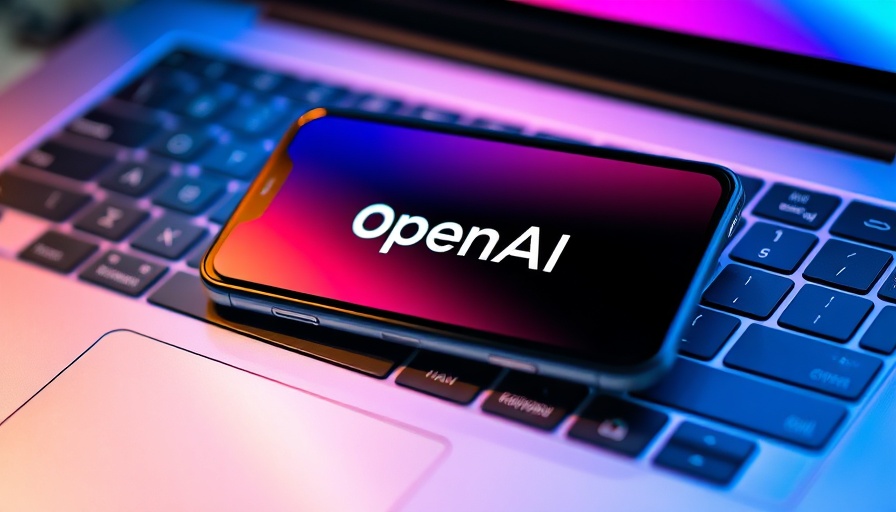
Elon Musk and OpenAI's Legal Battle: The Stakes of AI's Future
As the world of artificial intelligence continues to innovate rapidly, a high-profile legal dispute unfolds between Elon Musk and OpenAI, a company he co-founded in 2015. The recently expedited trial focuses on OpenAI's transition from a nonprofit organization to a for-profit model—an evolution that Musk argues strays from the original mission of developing AI for the collective good. Scheduled for fall 2025, this trial could redefine not only the future of OpenAI but the broader landscape of AI ethics and corporate responsibilities.
The Ethical Dilemma: Profit vs. Purpose
The crux of Musk's lawsuit revolves around his belief that OpenAI's shift to a for-profit entity compromises its foundational commitment to ethical AI development. Backed by substantial funding efforts, including a recent $6.6 billion round and potential negotiations for up to $40 billion with SoftBank, OpenAI argues that the transition is vital for competitiveness in a market where operational costs are escalating rapidly. In contrast, Musk maintains that prioritizing profit undermines the ethical considerations that initially guided OpenAI's establishment.
Legal Implications: A Precedent in AI Governance
This trial carries implications that extend beyond OpenAI; it could set a precedent for the treatment of AI organizations transitioning to for-profit models. If the court sides with Musk, it may usher in a wave of scrutiny regarding the ethical obligations of tech companies and their operational models, heightening the demand for transparency and accountability in AI development. Alternatively, a ruling favoring OpenAI could affirm the legitimacy of profit-driven motives in technology, pushing other organizations to follow suit. This dynamic could redefine investment patterns within the tech industry.
The Stakes for Musk, OpenAI, and the AI Sector
With Musk at the helm of his own AI venture, xAI, the competitive tensions become evident. He claims OpenAI's restructuring represents a deviation from its altruistic mission, while OpenAI counters that the profit shift enables necessary advancements in AI research. Analysts stress that the outcome of this trial could significantly impact the future of investments in AI technology, potentially encouraging or discouraging the influx of capital contingent on ethical commitments.
Public Perception and Market Reactions
The public's response to the legal confrontation has been polarized. Supporters of Musk laud him as a champion of ethical AI principles, while others argue that OpenAI's transition is essential for innovation and competitive viability. This ongoing debate reflects broader societal concerns regarding the intersection of technological advancement and ethical accountability in corporate practices. As public opinion sways in different directions, both parties recognize that the stakes of this trial extend beyond the courtroom, deeply influencing societal attitudes toward AI technologies.
Broader Implications for AI Innovations
Should the court ultimately favor Musk's position, it may lay the groundwork for new regulations surrounding profit-driven models in the tech industry, encouraging other organizations to weigh ethical considerations alongside fiscal opportunities. The trial can illuminate how AI enterprises, under scrutinized models, may need to balance the dual pressures of competitive necessity and ethical accountability.
A Call to Action for Enthusiasts
As the trial approaches, AI enthusiasts and industry stakeholders alike must engage critically with these developments. Encouraging open dialogues surrounding the ethical parameters of AI initiatives is vital, not only for protecting societal interests but also for shaping technology that fosters innovation while preserving its core humanistic principles. The outcome of this trial may not only affect Elon Musk and OpenAI but potentially the future direction of all artificial intelligence advancements.
 Add Row
Add Row  Add
Add 




 Add Row
Add Row  Add
Add 

Write A Comment